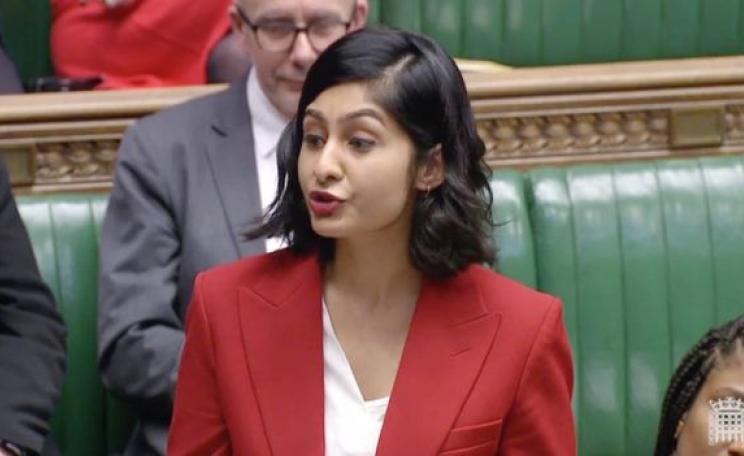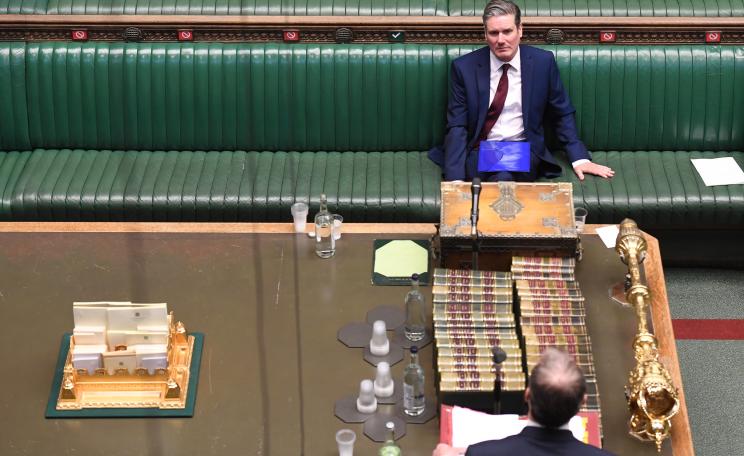At the time when climate breakdown is a more salient issue than it has ever been in British politics, the Greens are nowhere to be seen.
Four years is a long time in politics: the Green Party of England & Wales has changed a lot since 2015. The party that used to be respected for flying the flag of environmentalism in British politics has lost its niche and is undergoing an identity crisis.
Caroline Lucas MP’s latest attempt at headline grabbing has underlined her party’s aimlessness of recent years. In an article for The Guardian framed as a letter to a number of fellow MPs, Lucas proposed an emergency all-female cabinet to block no-deal Brexit by bringing “a different perspective”.
Social media immediately noticed that Lucas’ proposed cabinet members were exclusively white. She claimed they merely reflected the leadership of parties and parliamentary groupings across Westminster, but the absence of socialist, black, Asian and minority ethnic (BAME) leaders like Diane Abbot was striking.
Brexit
Lucas is naive to reduce the UK’s historic constitutional crisis manifesting around Brexit to the gender composition of the cabinet. Though the Greens are committed to constitutional reform in principle, it is telling that Lucas’ intervention seeks to only tinker with who’s in the room, rather than changing the rules of the game.
This stunt was a shot in the dark for Lucas, and it failed, signalling both the Greens’ general lack of strategy around Brexit which sits in abrasive parallel to their newfound focus on it. The Greens’ identity crisis is best represented by their pivot from anti-austerity activists, environmentalists and democrats to single-minded People’s Vote obsessives.
Many used to see the Greens as a party with principles. A referendum on EU membership was in their 2015 general election manifesto alongside commitment to remain and reform. This recent history has been conveniently erased as their leadership judge 'centrist Remainia' as the most strategic space from which to fight.
Politically and strategically, the Greens have never recovered from Jeremy Corbyn’s election as Labour leader in September 2015. At the time they had a decision to make. Should they continue to position themselves to the left of Labour, even if doing so distinctively meant being really rather left? Should they stay to the right but hammer home the environmentalism? In the end they did neither. That internal debate never happened and the Greens subsequently haemorrhaged left-wing, socialist and anti-austerity members picked up in the green surge of early-2015.
At the time when climate breakdown is a more salient issue than it has ever been in British politics, the Greens are nowhere to be seen.
The Greens now find themselves in a political no man’s land between their environmentalist roots, the anti-austerity positions they adopted in opposition to the 2010 coalition government, and the issue of the day – Brexit. They are not delivering in any of these regards.
Climate Breakdown
At the time when climate breakdown is a more salient issue than it has ever been in British politics, the Greens are nowhere to be seen. Their messaging relies on their reputation as environmentalists rather than new ideas or a compelling vision for the future.
Proposals for a Green New Deal have articulated a climate future based on prosperity and abundance. Labour has proposed a Green Industrial Revolution to speed-up the clean energy transition and revitalise post-industrial communities. The Greens have only been able to rehash tired climate-austerity politics which has alienated the general public from environmentalism for a generation.
In January 2019, Lucas urged Parliament to consider a “meat tax”. Sian Berry, the Greens’ co-leader, in May suggested limiting Britons to one flight per year. In June, a Green councillor in Sheffield proposed banning Mr Whippy ice cream vans to reduce air pollution. The Greens’ headline climate policies continue to focus on what climate breakdown means we have to give up, rather than how climate action can materially improve lives.
You might expect the Greens at this time to incubate the most radical climate policies and act as a platform for climate activism. Instead, Labour is facing up to the scale and urgency of the climate crisis by fulfilling both of these roles. Labour is proposing measures like nationalising the National Grid and making technology produced in the UK available for free or cheap to the Global South. Grassroots campaign groups like Labour for a Green New Deal are driving the party even further in ambition.
The Greens don’t know what they are any more. Lucas’ bizarre call for an all-white woman’s cabinet is just the latest example. Its only a matter of time that the supporters the Greens cling onto wake up and realise that the substance of a once principled party is quickly fading away, exactly when you’d expect it to thrive.
This author
Chris Saltmarsh is co-director of Labour for a Green New Deal and Co-Director: Climate Change Campaigns at People & Planet. He tweets at @chris_saltmarsh.







